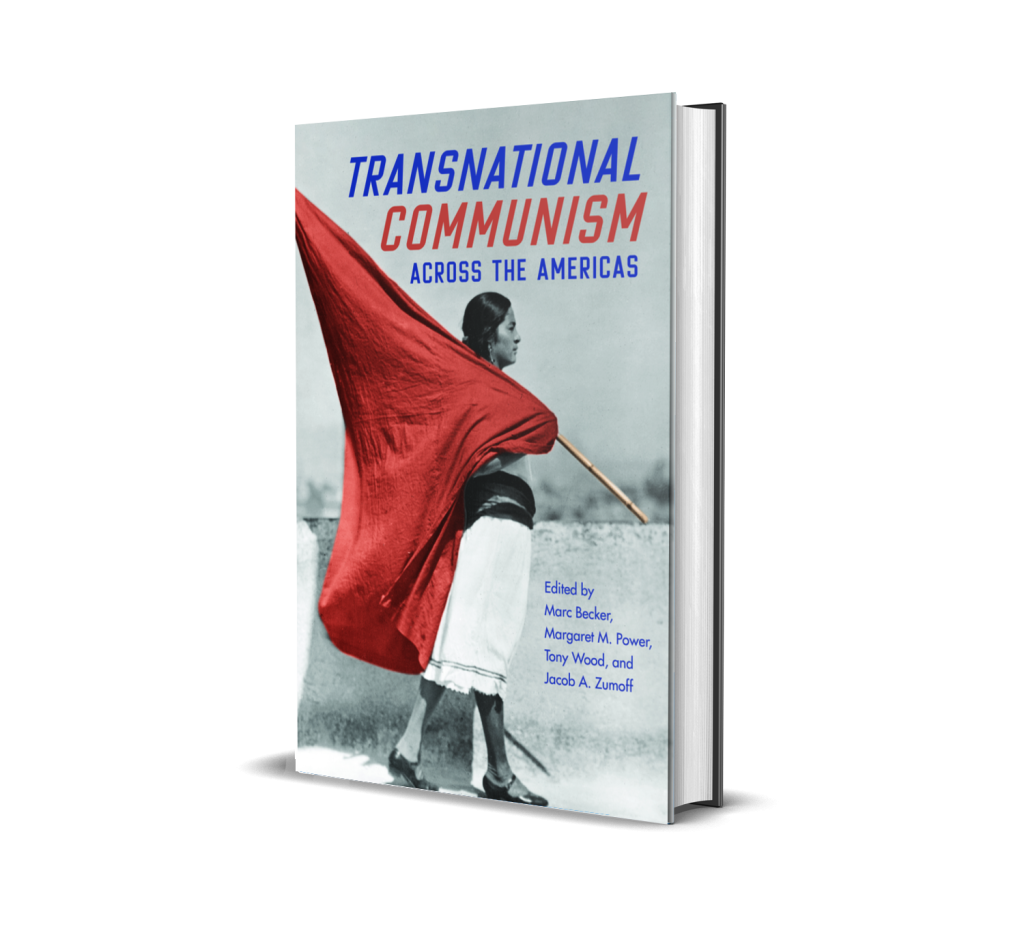Marc Becker, Margaret Power, Tony Wood, and Jacob Zumoff, editors of Transnational Communism across the Americas, answers questions on his scholarly influences, discoveries, and reader takeaways from his new book.
Q: Why did you decide to write this book?
The idea for the book came out of a panel all four editors took part in at the American Historical Association (AHA) conference in Chicago in 2019. We were very struck by the level of interest in the topic, and in the buzz around histories of transnational radicalism. Several publishers asked if we wanted to expand our panel into a book, and after thinking and talking about it we decided an edited volume was the way to go. It provided us with an opportunity to bring in a wider range of scholars and topics, and to broaden the conversation in ways that pleasantly surprised us along the way.
Q: What is the most interesting discovery you made while researching and writing your book?
Although a substantial amount of literature on communist parties in individual countries exists, remarkably little has been written that highlights the transnational history of communism throughout the Americas. Scholars from the Global North have written most of the studies that examine transnational connections among communist parties. Despite the paucity of literature on this topic, we found an amazing number of connections between and among communist parties throughout the region. We trust that this pioneering work will stimulate more studies on transnational communism since it is a very rich and underexplored field.
Q: What myths do you hope your book will dispel or what do you hope your book will help readers unlearn?
Many people assume that Latin America’s radical tradition is a result of external influences and that Marxists emphasize economic issues to the exclusion of a concern for race and gender. Our edited volume demonstrates that influences flowed in many different directions, and that many communists in Latin America had an understanding of the broad range of oppressions that exist in Latin America and the need to confront them on many different levels.
Q: Which part of the publishing process did you find the most interesting?
One of the most interesting aspects was working with historians who not only come from different countries, but who research different countries and time periods. In editing the volume, we had the opportunity to engage with a variety of scholars who approached this topic from a variety of perspectives. A result was a very engaging and intellectually stimulating experience that helped us reconceptualize our own research.
Q: What is your advice to scholars/authors who want to take on a similar project?
Reach out to other scholars who have done transnational research as well as those who examine the specific countries you are studying. Join a community of like-minded scholars so you have people with whom to discuss your findings and who will share their research with you. Instead of thinking of your work as a product of your own individual investigation, think of it more as the result of a collective effort.
Q: What do you like to read/watch/or listen to for fun?
A Roger Waters concert. Swimming in Lake Michigan when it is warm enough and in the city pools when it is not. Watching foreign detective shows or crime dramas because so long as the show is in a foreign language, it is educational. Although truth be told, you do learn about a society by the way it presents such shows. Cleaning the house and making everything neat and tidy. Going on long walks in the woods with the pooch. Talking with friends. Playing with archival docs. Bike rides on empty roads. Filling out silly Q&As.

